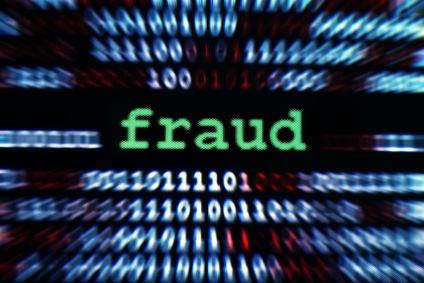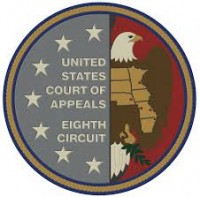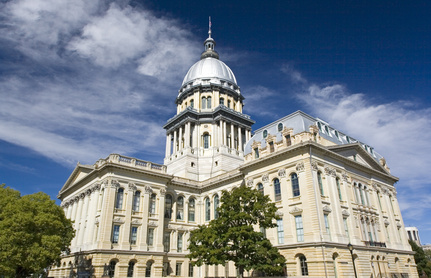The Maryland Court of Appeals recently affirmed a trial court’s grant of summary judgment in a putative class action “application fraud” case in favor of a mortgage company, bank, loan officers, realtors and a realty group and against the putative class of borrowers. In so ruling, the Court held: (1) the borrowers’ allegations were time barred; (2) the borrowers were put on inquiry notice and presumed to know the contents of the fraudulent loan applications they signed; (3) the lenders and realtors were not shown to have prevented the borrowers from reading the application documents; (4) the lenders had no…
Posts published in November 2015
In an Opinion Letter letter dated Nov. 2, the Massachusetts Division of Banks declared that collection law firms in Massachusetts are required to obtain a debt collector license pursuant to Mass. Gen. Laws Ch. 92, § 24 et. seq. The Opinion Letter was in response to correspondence from a Massachusetts collection law firm inquiring whether the firm, self-described as “overwhelmingly concentrated in the area of consumer debt collection on behalf of its clients,” was required to be licensed. At issue was the applicability of the licensing exclusion for “attorneys-at-law collecting a debt on behalf of a client.” In its Opinion,…
In an action alleging that the defendants violated the federal Fair Debt Collection Practices Act (FDCPA) by sending a form letter attempting to collect on allegedly time-barred debts, the U.S. District Court for the Middle District of Florida recently denied the plaintiff’s motion for class certification. In so ruling, the Court held: The plaintiff failed to demonstrate that the defendants’ records contain sufficient information from which the Court could determine whether each class member’s debt was obtained for “consumer” purposes; and Even if Plaintiff were able to establish on a class-wide basis that the defendants had a routine practice of…
The U.S. Court of Appeals for the Second Circuit recently reversed dismissal of a federal Fair Debt Collection Practices Act (FDCPA) claim based on the statute of limitations, holding that an FDCPA violation occurs when a bank freezes a debtor’s bank account, not when a debt collector sends a restraining notice to the bank. In so ruling, the Court distinguished the rulings in Maloy v. Phillips, 64 F. 3d 607 (11th Cir. 1995) and Mattson v. U.S. W. Commc’ns, Inc., 967 F. 2d 259 (8th Cir. 1992), which held that an FDCPA violation occurs when the alleged unlawful debt collection…
On Nov. 20, Pennsylvania Senators Greenleaf, Tartaglione, Rafferty and Pileggi introduced SB 1072, which was referred to the Consumer Protection & Professional Licensure Committee. The legislation, if enacted, would the limit the number of telephone communications that a creditor or debt collector may have with a debtor to three, total. The legislation amends the Pennsylvania Fair Credit Extension Uniformity Act by adding the following as an unfair act or deceptive practice: (b.1) Limitation on telephone contacts with consumers. (1) It shall constitute an unfair or deceptive debt collection act or practice under this act if a debt collector or creditor…
The U.S. Court of Appeals for the Eighth Circuit recently affirmed the dismissal of a federal Fair Debt Collection Practices Act (FDCPA) claim premised solely on the allegation that an affiant who swore to have personal knowledge of the facts did not, in fact, possess personal knowledge when he made the affidavit. In reaching its decision the Court held that even if the affiant lacked “personal knowledge,” the plaintiff had not plausibly alleged that the content of the affidavit contained a false statement “in any meaningful way.” A copy of the opinion in Janson v. Katharyn B. Davis, LLC is available…
The District Court of Appeal of the State of Florida, Fifth District, recently reversed a final judgment of foreclosure in the mortgagee’s favor, holding that based on the default date alleged in the complaint, the default date alleged in a prior foreclosure suit as to the same loan, and the dismissal without prejudice of the prior foreclosure action, the mortgagee’s foreclosure claim was barred by Florida’s five-year statute of limitations. However, in so ruling, the Fifth District also held that the mortgagee was “not precluded from filing a new foreclosure action based on different acts or dates of default not…
The U.S. Court of Appeals for the First Circuit recently held that a failure to file a probate claim does not extinguish a mortgage lien under Rhode Island law. In so ruling, the Court held that “the piper must be paid.” A copy of the opinion is available at: Link to Opinion. The plaintiffs, a brother and sister, inherited their mother’s house. During her lifetime, the mother had taken out a reverse mortgage secured by the house. The mortgage securing the loan contained an acceleration clause and power of sale and became due and payable upon the mother’s death. The…
The U.S. District Court for the District of Oregon recently held that a notice provided pursuant to 15 U.S.C. 1692g that also contained additional language requesting that a dispute of the debt “please” be sent in writing violated the federal Fair Debt Collection Practices Act (FDCPA). In so ruling, the District Court held that such additional language overshadows or is inconsistent with a consumer’s right to orally dispute the debt within the 30-day period under 15 U.S.C. 1692g, and constitutes a false representation or deceptive means to collect or attempt to collect a debt under the FDCPA. A copy of…
The U.S. Court of Appeals for the Sixth Circuit recently affirmed judgment on the pleadings in favor of a debt collector because the voicemail in question, which was left at the plaintiff’s business, was not a “communication” as defined by the federal Fair Debt Collection Practices Act (FDCPA) because it did not convey information about the debt. A copy of the opinion is available at: Link to Opinion. A debt collector sent a letter to the debtor’s business requesting payroll information and later left a voicemail at the debtor’s business that stated the caller’s name, the name of the company…
Providing a putative class representative with complete relief did not moot his individual and class demand for declaratory and injunctive relief under the Florida Deceptive and Unfair Trade Practices Act (FDUTPA) according to a recent decision from a divided panel of Florida’s First District Court of Appeal. In Ahearn v. Mayo Clinic, 2015 Fla. App. LEXIS 16716 (Fla. Dist. Ct. App. 1st Dist. Nov. 6, 2015), Shawn Ahearn received emergency medical treatment from the Mayo Clinic in September 2013. Lacking health insurance for the medical care, he received a bill for $5,953.26. After paying $330 of the bill, Ahearn found fault with…
A recent Illinois bill provides a welcome fix to the Illinois Collection Agency Act (ICAA). The legislation, SB 1369, corrects amendments made to the ICAA this past August. Those amendments potentially expanded sections of the ICAA to commercial debt and would require disclosures contrary to (and possibly in violation of) the federal Fair Debt Collection Practices Act. The corrective legislation: Amends section 9.1 (Communication with persons other than debtor) to provide that when seeking location information from third parties, collection agencies and debt buyers must provide the name of their employer “only if expressly requested” Amends section 9.3 (Debt validation) to provide that a…












